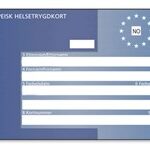Most owners of properties in Spain are not aware that they have an “imaginary” income when they own a property in Spain, which is not their main residency, meaning that Spain is not their country of residence.
Non-residents remain subject to this tax because, by definition, Spain is not their principal residence.
The imaginary income is the 2% or the 1.1% of the rated value of the property, which is stated in the Property Tax bill (IBI), just as if you had received this imaginary income in cash. The tax rate is 19%. The income is understood to accrue once a year on the 31st December and the filing period is throughout the calendar year following the year of accrual. Up to the 31st of December is time to declare for the “income” received in 2017.
Bear in mind that filing the Form 210 and paying the tax does not come directly from the Tax Ministry as with the Property Tax. Every owner of a property in Spain, which is not its principal residence, should be diligent, fill the Form and pay the tax of his own initiative.
The Spanish Tax Ministry (Agencia Estatal de la Administración Tributaria) is the competent authority to collect this Non-Resident Income Tax.
However, some owners of properties think that they are up to date with their tax obligations in Spain because they pay the Property Tax, direct debit from their bank account.
The Non-Resident Income Tax is different from the “Property Tax”, which is a local tax that is levied by the Town-Halls (not by the Tax Ministry) and it is billed directly and sent automatically to the owners on a annual basis, usually from June-July until September-October through SUMA, the collection authority depending on the regional government.






Recent Comments